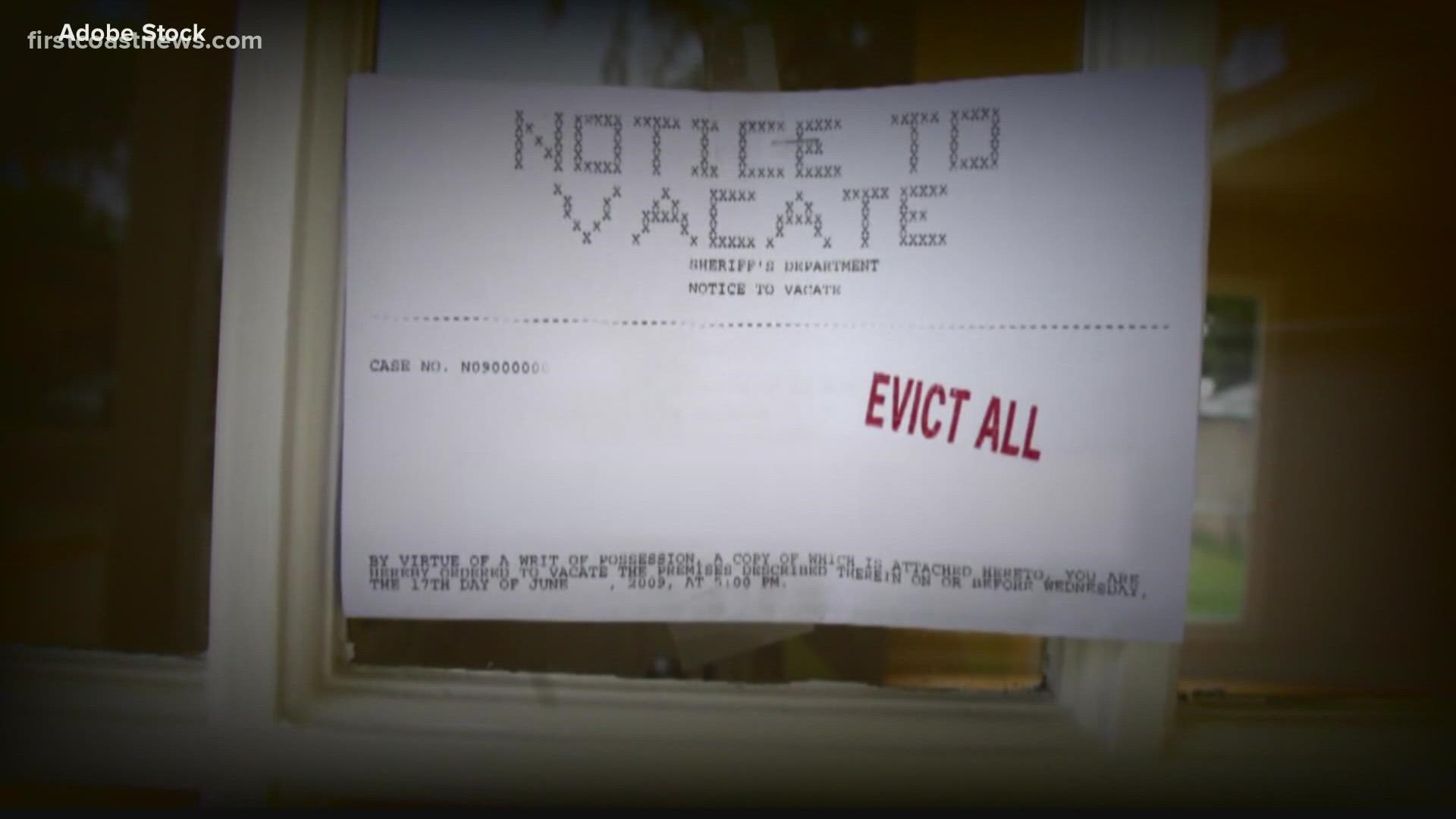JACKSONVILLE, Fla. — Legal aid societies are sending out a call to action, as hundreds of applications for rental assistance are expected to be filed in the city of Jacksonville following the end of the eviction moratorium.
There have been over 100 evictions filed in Jacksonville the last week over August, and over 5,000 this year alone, according to data collected by Princeton University.
"Immediately, families are going to have to respond to those eviction proceedings and if they are behind in rent, there’s really not much they can do to respond unless they tap into these emergency assistance funds," said Mike Freed, Shareholder Gunster law, president National Conference of Bar Presidents.
Up to $10 million in funding is available through the Duval County Emergency Rental Assistance Program. The program just reopened last Friday, meaning a flood of tenants and landlords are expected to apply, and with the hundreds of cases, help is needed.
"There is this flood of evictions that are coming and we need lawyers volunteering in communities across the country to help out," said Freed.
Freed has put out a call for action for attorneys to volunteer.
“To help mediating these disputes, reaching to their local court systems and their legal aid organizations and taking on cases pro-bono," said Freed. "Because that will benefit the landlords and the tenants, it will benefit the justice system and in the end, it really benefits the community."
Some of these attorneys will work through the Jacksonville Area Legal Aid. Leaders there hope to put attorneys right in Jacksonville courts to help landlords and tenants get this funding.
“We can use local attorneys and other local advocates," said Jim Kowalski, president and CEO JALA. "The goal is to solve the back rent issue and then to solve future issues so that the tenants don’t find themselves in these issues."
Kowalski said there are fewer than 600 legal aid workers statewide, but roughly 10 million Floridians qualify for civil legal aid. That is why help is needed to keep people in their homes and get landlords the rent they may have lost.
“All of these pieces are in place, we just need them all to work and continue to work so that we can get some of this money spent down," said Kowalski.
Funds are available to residents to cover up to 12 months of rent and utility payments, with the option for an additional three months.

